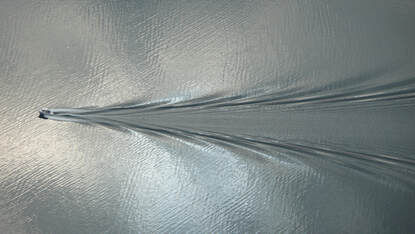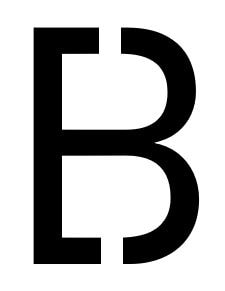
Doubt. It’s an emotion that creeps in on all of us in a wide array of scenarios: personal relationships, at work, public speaking, and so on. We have a visceral reaction to doubt. It immediately dampens a mood. It gives us pause, sometimes indefinitely. And it has the power to completely shift the course of our lives. But what really is doubt?
At first glance, it’s an emotion not unlike joy, anxiety, fear, or contentedness. However, like all emotions, it’s a red flag or signal of something else going on. So, what could doubt be a signal for? The answer: unknown.
I don’t mean that the answer is unknown; I mean that doubt is signaling to your brain that you are stepping into the unknown. Whatever the situation is, if there is a prominent element of the unknown involved, doubt will undoubtedly creep in to a certain extent. Now, I say “prominent” because there is, objectively, the unknown in everything we do. And yet, when we are about to ask someone out on a date or talk to our boss about a potential promotion, the unknown outcomes are highly prevalent in our minds. Now that we understand that doubt is our brain’s subtle way of letting us know we are stepping precariously into the unknown, what do we do? Is it good, bad, what?
The answer: unknown. This time I really don’t know the answer because nobody can. Joseph Campbell, the acclaimed academic and author, once wrote, “If you can see your path laid out in front of you step by step, you know it’s not your path. Your own path you make with every step you take. That’s why it’s your path.” Think of it like a ship sailing in an open sea. The only clear path is the one behind you in your wake. You can distinctly see the disturbed water trailing off in the distance, revealing the path you’ve been on. When you stand on the bow of the ship, all you see is endless, open horizon. You create your path in the moment of action. Hence, the unknown is exactly where you should be. Otherwise, you are walking the path of someone else, predetermined for you by another.
Naturally, when doubt sets in, we feel unpleasant about it. There’s a sense of security in “knowing” what is coming. It’s almost evolutionary by design. It is in our survival’s best interest to see what is ahead. And, naturally, we tend to take things to the extreme. Doubt doesn’t necessarily mean you can’t do something or you will likely fail or that you’re unprepared. It simply means: head’s up! Keep a weather eye on the horizon and be adaptable.
We live into the future we see coming. If your child is learning to ride a bicycle, watch them. If they look to the left at a parked car, they’re going to steer their bike directly into that car. It’s self-fulfilling prophecy on a fundamental level. And, if in the moment of doubt, we take the signal to the extreme and build a negative narrative around it (i.e., “I’m doomed,” “She’s going to throw water in my face,” or “that promotion was always going to go to Steve. Damn, Steve!”), then that is the reality we are stepping into and creating in the process.
However, if we see doubt for what it truly is, we can use it to our advantage as a signal we are on the right path. We are conscious of the unknown, which is not to be taken for granted as it so often is. We know that because the future is uncertain, we are in a state of creation, forging our own way, and in that is a strong element of the unknown. But unknown doesn’t mean “bad.” It simply means that you need to be on your game, roll with the punches, and if this has a dash of self-fulfilling prophecy in it, make it a good one!
At first glance, it’s an emotion not unlike joy, anxiety, fear, or contentedness. However, like all emotions, it’s a red flag or signal of something else going on. So, what could doubt be a signal for? The answer: unknown.
I don’t mean that the answer is unknown; I mean that doubt is signaling to your brain that you are stepping into the unknown. Whatever the situation is, if there is a prominent element of the unknown involved, doubt will undoubtedly creep in to a certain extent. Now, I say “prominent” because there is, objectively, the unknown in everything we do. And yet, when we are about to ask someone out on a date or talk to our boss about a potential promotion, the unknown outcomes are highly prevalent in our minds. Now that we understand that doubt is our brain’s subtle way of letting us know we are stepping precariously into the unknown, what do we do? Is it good, bad, what?
The answer: unknown. This time I really don’t know the answer because nobody can. Joseph Campbell, the acclaimed academic and author, once wrote, “If you can see your path laid out in front of you step by step, you know it’s not your path. Your own path you make with every step you take. That’s why it’s your path.” Think of it like a ship sailing in an open sea. The only clear path is the one behind you in your wake. You can distinctly see the disturbed water trailing off in the distance, revealing the path you’ve been on. When you stand on the bow of the ship, all you see is endless, open horizon. You create your path in the moment of action. Hence, the unknown is exactly where you should be. Otherwise, you are walking the path of someone else, predetermined for you by another.
Naturally, when doubt sets in, we feel unpleasant about it. There’s a sense of security in “knowing” what is coming. It’s almost evolutionary by design. It is in our survival’s best interest to see what is ahead. And, naturally, we tend to take things to the extreme. Doubt doesn’t necessarily mean you can’t do something or you will likely fail or that you’re unprepared. It simply means: head’s up! Keep a weather eye on the horizon and be adaptable.
We live into the future we see coming. If your child is learning to ride a bicycle, watch them. If they look to the left at a parked car, they’re going to steer their bike directly into that car. It’s self-fulfilling prophecy on a fundamental level. And, if in the moment of doubt, we take the signal to the extreme and build a negative narrative around it (i.e., “I’m doomed,” “She’s going to throw water in my face,” or “that promotion was always going to go to Steve. Damn, Steve!”), then that is the reality we are stepping into and creating in the process.
However, if we see doubt for what it truly is, we can use it to our advantage as a signal we are on the right path. We are conscious of the unknown, which is not to be taken for granted as it so often is. We know that because the future is uncertain, we are in a state of creation, forging our own way, and in that is a strong element of the unknown. But unknown doesn’t mean “bad.” It simply means that you need to be on your game, roll with the punches, and if this has a dash of self-fulfilling prophecy in it, make it a good one!
